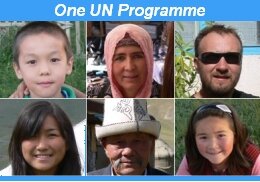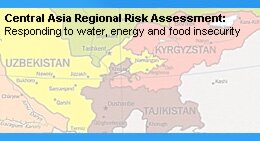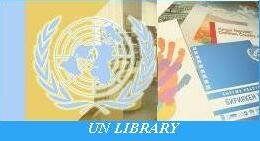| Story of Asylbek Kurchuev and its struggle for iodized salt |
|
|
| Categories: (Other Documents | Document Database | UN Agencies | UNICEF) |
|
With the support of UNICEF and other international organisations, the Association for the Protection of Consumers’ Rights is becoming more and more active. Asylbek Kurchuev, the Head of the Association, knows first hand the consequences of iodine deficiency. In 2001 the experienced scientist, who teaches chemical methods of analysis of foodstuffs in the Kyrgyz Technical University, found out that his 9 year old daughter was ill with endemic goitre. Since that moment Asylbek, along with like-minded colleagues, has been making his contribution to lowering the prevalence of this dangerous disease that is so easy to prevent simply by eating iodized salt.Firstly, the Association took on the task of monitoring the quality of salt consumed by the population of Kyrgyzstan. “The first results shocked us,” says Asylbek. “Tests in the regions showed that salt is either poorly iodised or else contains no iodine at all. And what is more, every third person in Kyrgyzstan at that time was suffering from thyroid gland diseases.” And then members of the Association, inspired by their unflagging leader, with absolutely no financial support and on their own initiative, began the painstaking and often thankless task of improving the quality of salt in the country. They met salt producers, heads of local government and environmental health officers, convinced of the necessity for coordinated action. “We crossed the country on foot, working with the population in the south and the north,” remembers the Head of the Association. “The population needed to know how important iodised salt is for health.” The Association began to work with schoolchildren, teaching them methods of testing salt in rural households, and in this way developing a network of advocates at the local level. What does iodine mean for Kyrgyzstanis? Out of a total consumption of 19 thousand tons of salt per year, Kyrgyzstan produces just 500 tons. The remainder is imported from other countries, which makes quality control much more difficult. All these factors increase the risk of iodine deficit diseases, especially for pregnant women and children. Some statistics As a result of a mass prophylactic campaign by enrichment of cooking salt with iodine, by 1968 the level had fallen to 6 percent. The problem was considered solved, and was no longer paid attention to. As a result, by the end of the 1980s a growth in thyroid gland diseases was again noticed. Insufficient iodine consumption again created a serious risk to the health of the 5 million citizens of the country, including the risk of physical and mental development problems for 1.6 million children. By the mid 1990s, the frequency of endemic goitre among children was between 37.3 percent and 82 percent, and that of women between 21.7 percent and 40 percent. Meanwhile a child who grows up in an area with iodine deficiency can have an IQ up to 13 points lower than a child growing up in an area where there is sufficient iodine. Iodine is essential for children to reach their full mental potential. In 1994, the first National Programme for the Prevention of Iodine Deficit Diseases was adopted in the country. However research carried out in 200-2001 highlighted the ineffectiveness of this programme and the need to develop a new, better coordinated programme, as well as a Law on Prevention of Iodine Deficit Diseases. Back to the Association As a result, at present approximately 80 percent of the population consume adequately iodised salt, which means that four out of five newborns have enough iodine to escape the risk of reduced mental development and development of goitre and other iodine deficit conditions. The Law gives NGOs the duty of monitoring the quality of enriched foodstuffs. Currently the Association for the Protection of Consumers’ Rights is one of the main partners of UNICEF, working in close cooperation with the Ministry of Health, and particularly with the Republican Sanitary Inspection Administration and the network of Village Health Committees, currently a total of 807. The Head of the Association is a member of the Coordination Council for Food Safety under the Government, and the Oversight Council of the Office of the Public Prosecutor. “The population already knows that salt should contain iodine,” says Asylbek Korchuev. “Our task now is to ensure a high quality for the retail product and to prevent the illegal importing of poor quality salt from neighbouring countries.” Olga Grebennikova |





















